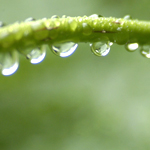 Maintaining a healthy hydroponic growing system isn’t always easy. One wrong move could completely wipe out your crop. Here are a few reasons why hydroponic gardens are so prone to mishaps and what you can do to prevent them.
Maintaining a healthy hydroponic growing system isn’t always easy. One wrong move could completely wipe out your crop. Here are a few reasons why hydroponic gardens are so prone to mishaps and what you can do to prevent them.
Hydroponic growing systems look simple at first. Replace soil with water that’s been enhanced with plant nutrients, turn on the grow lamps, feed and fertilize on schedule, and watch your crop bloom! Unfortunately, as the environment is so controlled, it’s easy to make mistakes that can have lasting consequences.
Buying cheaply can have disastrous results for your hydroponic growing systems. This doesn’t mean that you should buy only the most expensive products available, but if the highest quality nutrients, containers, and grow lights are on the expensive side, it’s best that you buy them rather than settle for a poorer, cheaper alternative.
Why is this? There are many cases of hydroponic growing systems being ruined due to cheap lighting. A gardener will buy the grow lights thinking he or she is getting a good deal, only to discover that the lights do very little to help the plants grow, and their power bill is enormous to boot! Many grow lights are expensive in other waystheir initial price or installation fee may be very pricey indeedbut in the long run, these lights pay for themselves, as the power bill is lower, and your production rate is higher.
Neglecting your research can also affect your hydroponic growing systems. In addition to learning about the products you use, it’s also a good idea to learn about the plants you’re growing. Are they sensitive to light? Do they need certain amounts of food or fertilizer? Do they handle humidity or temperature changes well? It’s important to learn these things about your plants, especially if you are growing them from seeds. It will help unravel the enigma surrounding many of your problems.
For all hydroponic growing systems are prone to accidents, the benefits greatly outweigh its difficulties. That aside, the absence of soil results in plants that grow faster, healthier, and produce better fruits and vegetables than most soil grown plants. There are also no weeds, invasive plants, or pests to worry about, as these all originate in soil. With this in mind, it’s easy to see why many gardeners turn to hydroponic gardening when their soil turns out to be too hard or rocky to grow anything in.